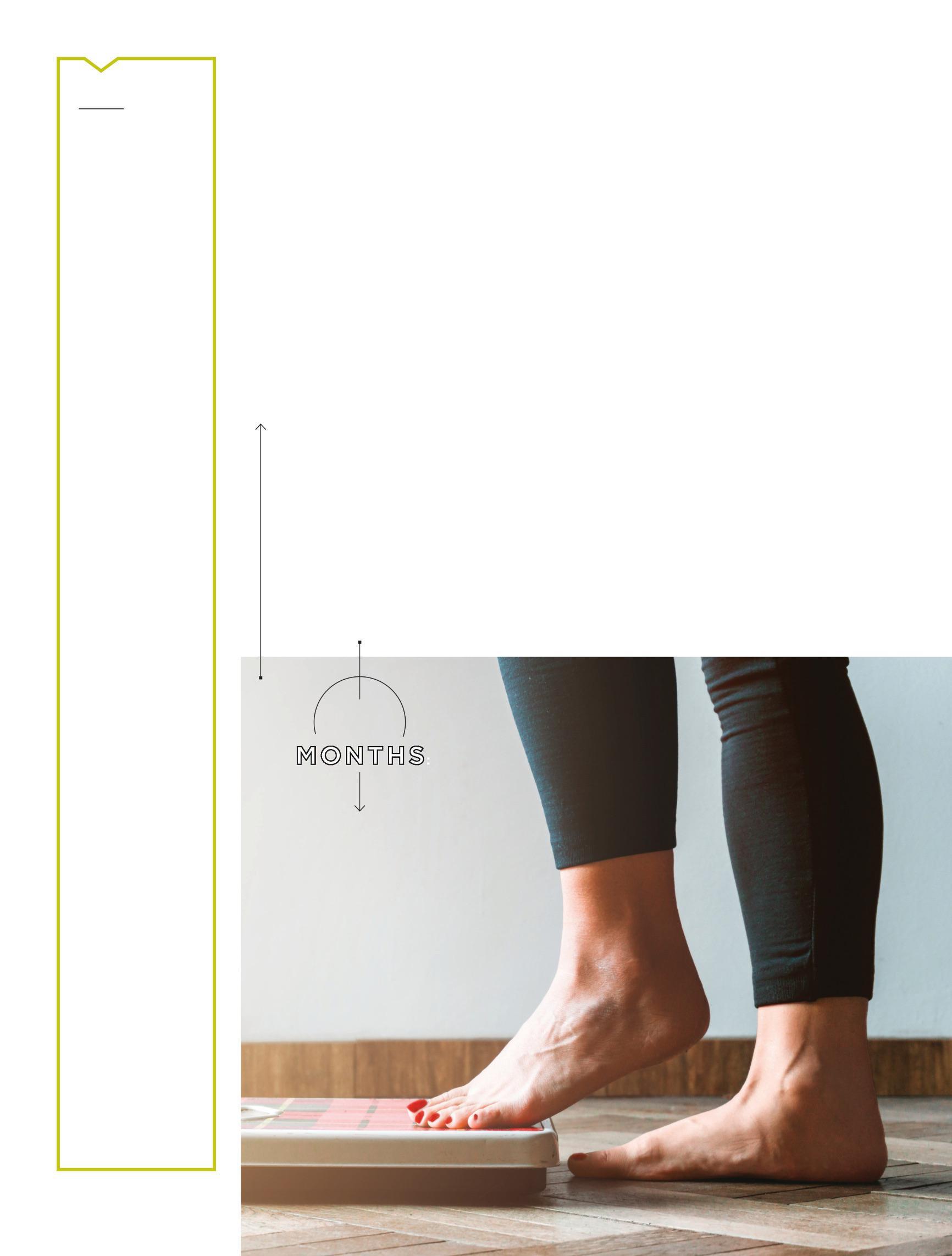
4 minute read
RECIPE MAKEOVERS
Sweet star t to your day.
French Toast Roll-Up
Advertisement
See our recipes at AuntMillies.com
Serves: 4
INGREDIENTS
8 slices Aunt Millie’s Homestyle Buttermilk Bread 3/4 c spreadable cream cheese 1/2 c your favorite jam, jelly, or spread 3 eggs 1/2 c milk 1 tsp ground cinnamon 1/4 tsp ground nutmeg Pinch salt 2 tbsp butter Maple syrup or honey
French Toast Roll-Up
Prep Time: 15 min Cook Time: 10 min Total Time: 25 min
DIRECTIONS
1. Trim crusts from bread; save for another use. Use a rolling pin or the palm of your hand to flatten bread. Spread cream cheese on each slice, leaving a small border of plain bread all around. Top evenly with jam; roll up into logs. 2. In a shallow bowl, whisk together eggs, milk, cinnamon, nutmeg and salt. Roll each log in egg mixture until completely coated. 3. In large nonstick skillet, melt butter over medium heat. Place logs, seam-side down, in skillet. Cook for 2 minutes or until lightly browned. 4. Cook, turning as needed, for an additional 3 to 5 minutes or until browned all over. Serve with warm maple syrup or honey for dipping.
W H Y diets don’t work

Diets have been around for longer than many care to remember. According to Christy Harrison, a registered dietitian and author of the book Anti-Diet, no diet has ever been shown to result in long-term weight reduction for more than a minuscule percentage of the population. Weight cycling (aka yo-yo dieting) is an independent risk factor for heart disease, chronic inflammation, binge eating, and numerous other unfavorable outcomes. And this makes sense, says Tessa Nguyen, registered dietitian, chef, and founder and principal of Taste Nutrition Consulting. “Diets don’t work because they’re centered around depriving your body of the food, nutrients, and enjoyment it needs to function and thrive on a day- to-day basis,” Nguyen says. “This constant undernourishment may lead to shortterm aesthetic changes, but in the long run, it harms your body both inside and out.” You may not be on a diet, but you’ve likely had your mood sour after stepping on the scale and seeing the number creep up. These negative feelings arise from the cultural stigma against larger bodies. “There are subtle, low-level ways in which certain types of bodies and foods are held up as being good and others are denigrated as being bad,” says Christy Harrison. The systems people routinely operate in, such as health care, travel, employment, and social relationships, may be accessible or inaccessible to you based on body size, Cara Harbstreet says. High body weight and large body size increase exposure to weight stigma, weight discrimination, and medical trauma. “We place higher social value and status on bodies that fit into a ‘normal’ body mass index (BMI) range, and weight loss can be very tempting for those who have firsthand experience with being oppressed or marginalized based on their body size,” Harbstreet says. Ironically, this cultural obsession with weight puts increased stress on the body that may pose a greater threat to your well-being than what you eat. A 2015 study in the journal Obesity found that exposure to even a relatively mild weightstigmatizing intervention caused people’s cortisol (stress hormone) levels to go up significantly. Weight stigma is enforced at a young age when BMI is used as a key measure of health at the doctor’s office. “Our culture values numbers, facts, and data,” Harbstreet says. “And BMI and the scale offer a very easy means of tracking fluctuations or changes to body weight.”
w e i g h t o b s e s s e d
LETTING GO OF BMI
The data underpinning the BMI chart as we know it was created by a statistician trying to determine the height and weight of an average man. Though it was not intended to correlate to health, insurance companies began using this data to determine health care coverage. Harrison and others stress that although BMI has been used as a quick way to make assumptions, it should not be used as a determinant for one’s overall health. “Changing this way of thinking won’t be easy,” says Harrison. “But it will also require that people, including medical professionals, look at the strong evidence we have against using weight and BMI as [primary] measures of health.” Until that happens, Harbstreet says, people may need to advocate for themselves and steer their health care providers away from a focus on BMI. One way to do it: Ask your doctors how they’d approach your health if they didn’t know your weight. Challenge them to use other health markers, such as lab results and typical diet and exercise, to make a diagnosis or create a treatment plan for your needs. If they won’t think beyond the BMI chart, Harbstreet says you may want to consider other providers, including physicians who specialize in weight-inclusive or trauma-informed care, who take a more holistic approach to wellness.
12
The amount of time before most people gain back the pounds they lost while following a popular diet plan, according to a 2020 systematic review published in the British Medical Journal.










